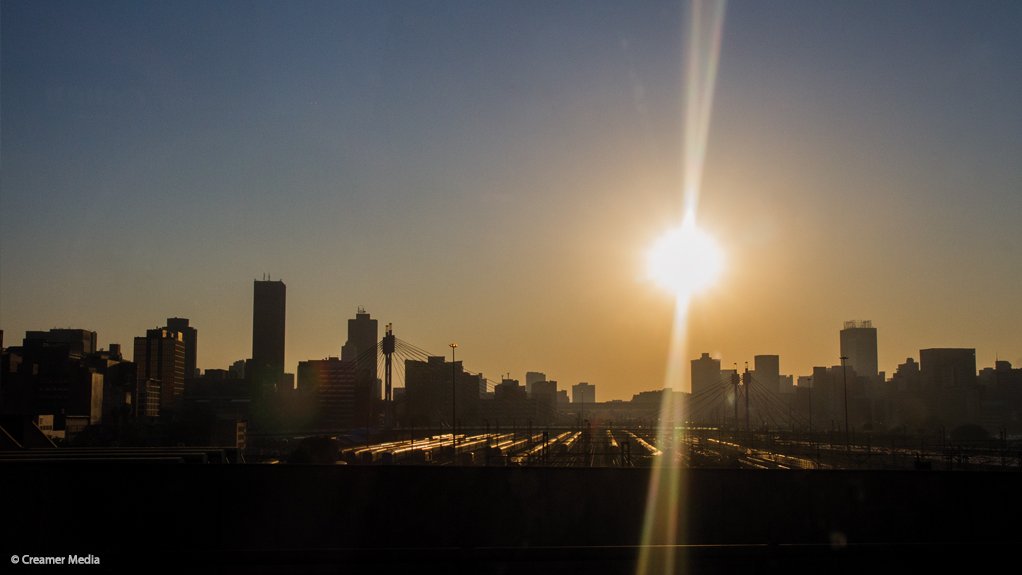Johannesburg was once the City of Gold, a gleaming metropolis whose skyline symbolised hope, jobs, and prosperity for multitudes. It didn’t merely power Gauteng City Region’s economy; it was the economic heartbeat of South Africa. In 2015, Johannesburg contributed around 40% of Gauteng’s Gross Domestic Product (GDP). The province, in turn contributes about a third of the national total. As the provincial economy falters, the shockwaves threaten South Africa’s entire population. No nation can thrive when its economic heart is dying.
The people of Gauteng are poorer per person today than ten years ago, a direct result of ANC misrule and failing economic mismanagement.
The central business districts in Gauteng are in decay, riddled with potholes, overrun with garbage, hijacked buildings, and rampant crime. Residents are “drowning in filth due to uncollected waste, pothole-infested roads, long grass, sewerage, water challenges, and power cuts” as colourfully put by the Star in 2023. It’s the same all over the province, except in the municipality of Midvaal
These twin evils of decay and neglect continue to devastate Gauteng’s economy, affecting every resident. Stats SA reports Gauteng’s official unemployment rate rose to 34.7% in the first quarter of 2025, up from 34.4% in the fourth quarter of 2024, while the expanded rate climbed to 40%. Youth unemployment in Gauteng remains alarmingly high, at 62.4% for those aged 15–24. The effects are visible: shuttered shops, vacant factories, and the quiet despair stalking townships across the province.
Impact of Crime
The key to increasing jobs is economic growth. The key to growth is investment. Why do investors not invest? There are at least three factors that are cited. The number one factor is crime. Not only does crime deter investment, in many cases the target of criminals is public infrastructure. In short, this is economic sabotage. Every cable stolen is a power outage somewhere. Every vandalised transformer is going to result in downtime for several businesses. All of these add to the cost of the products and services we sell.
Moreover, investors would rather invest their money where energy supply and other services are more reliable, and secondly, those who do invest have to put in generators and constantly buy diesel, which also adds to the cost of the goods we sell. In the end, South African goods are too expensive, and we lose market share to our competitors. Consequently, our companies go out of business, and jobs are lost.
Mayoral Musical Chairs
Since 2016, Johannesburg has endured the upheaval of nine different mayors because easily bought councillors in small parties caused relentless instability in fragile coalitions. This chaos has deprived residents of consistent basic services and robbed the local economy of certainty and vision. Alarmed by policy unpredictability, investors have fled, further eroding the city's prospects.
Meanwhile, our two other Metros, Ekurhuleni and Tshwane, have suffered under ANC misgovernance and squabbles over patronage. Factories that once roared with productivity now stand silent as criminal syndicates strip copper cables from infrastructure, paralysing industry and costing jobs. Cable theft has forced cities to divert funds to emergency replacements, crowding out routine maintenance.
Tshwane, our nation's capital, is burdened by high-level corruption. One example is that the Deputy Mayor Eugene Modise, an ANC councillor, is under intense scrutiny over R21.7-million in unpaid municipal bills on properties tied to his business interests.
Bigger Picture of Decay Elsewhere
Johannesburg’s deterioration is an example of the broader crisis facing Gauteng under the ANC's dysfunctional administration, where cadre deployment, corruption, and poor governance hollow out the province’s economic foundations. Gauteng, South Africa’s economic engine, is seizing up. Its failure will cost all of us, regardless of political affiliation or heritage.
No Small Business
Once the lifeblood of Gauteng’s economy, small businesses are collapsing under the burden of red tape, corruption, and persistent service delivery failures. A 2023 peer-reviewed study in the South African Journal of Entrepreneurship and Small Business Management (SAJESBM) found that SMMEs in Gauteng struggle due to infrastructure constraints, leadership shortages, financial pressures, and, critically, high levels of crime and corruption. A 2023 Small Business Institute report confirmed that 60% of small firms surveyed in Gauteng cited government inefficiency and crime as the biggest threats to survival.
Call to Action
Gauteng stands at a crossroads. Years of decay, corruption, and neglect have brought our province to the brink.
However, there is an alternative. In Cape Town tourism surges ahead through decisive governance and a focus on safety and service delivery. the Western Cape and DA-led municipalities demonstrate that where we govern, we govern better. Through the DA’s good governance, we can still rescue Gauteng by rebuilding confidence, restoring jobs, and securing prosperity to the benefit of not only Gauteng residents but for the rest of South Africa.
In 2026, the voter’s choice is clear: Gauteng’s downfall will become South Africa’s catastrophe if we fail to act.
Written by Mike Moriarty MPL, DA Gauteng Shadow MEC for Economic Development
EMAIL THIS ARTICLE SAVE THIS ARTICLE ARTICLE ENQUIRY FEEDBACK
To subscribe email subscriptions@creamermedia.co.za or click here
To advertise email advertising@creamermedia.co.za or click here











